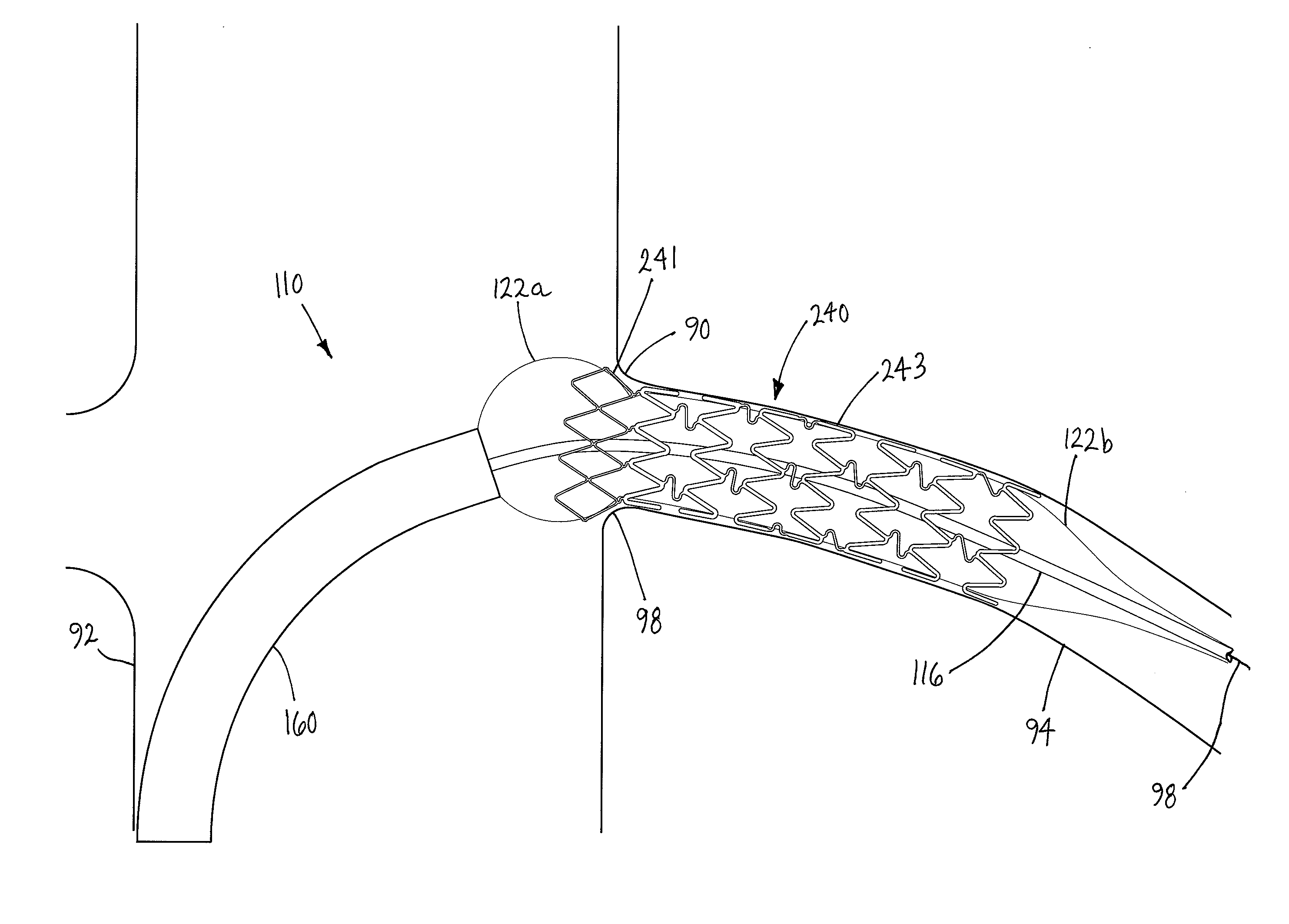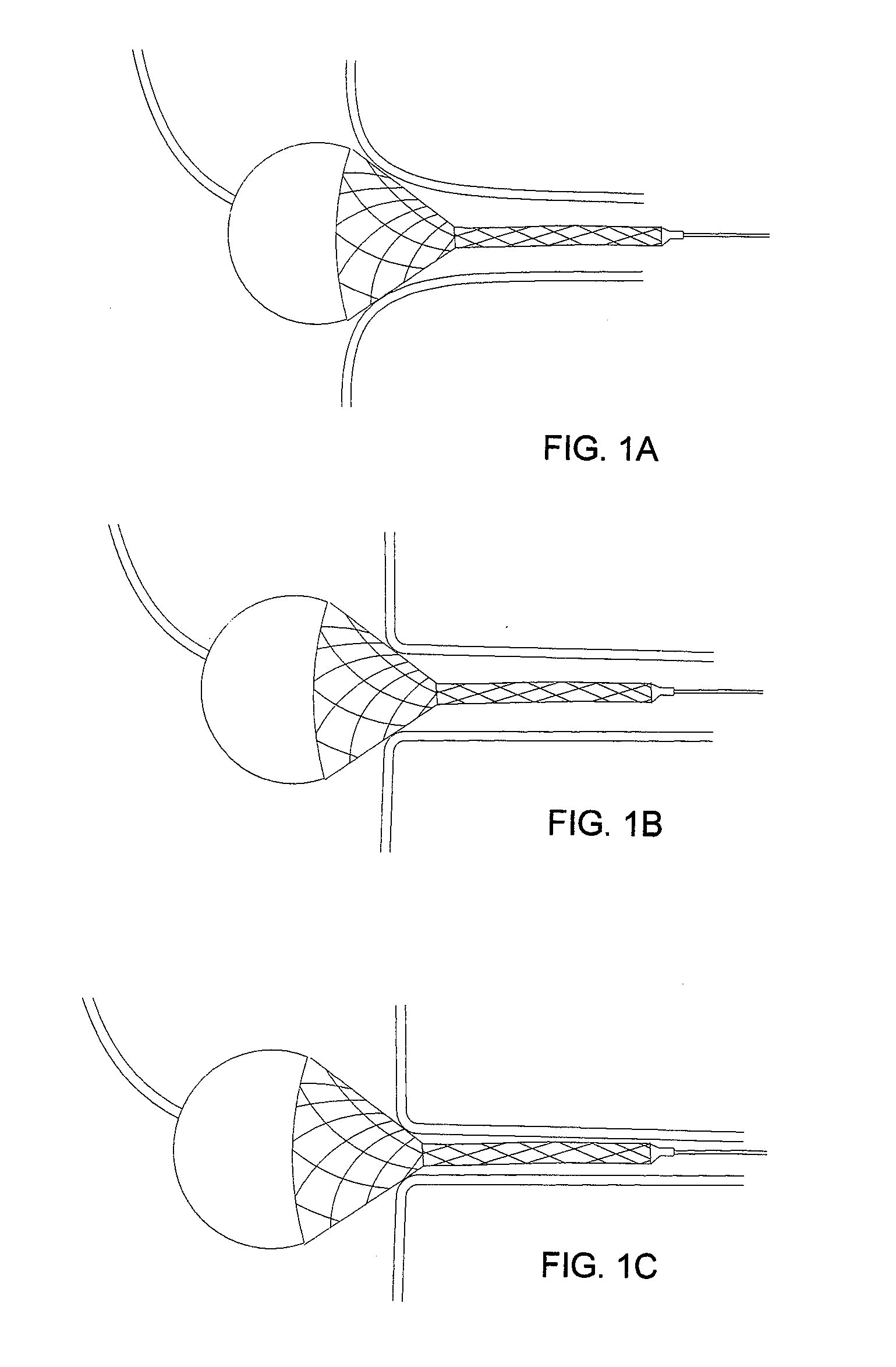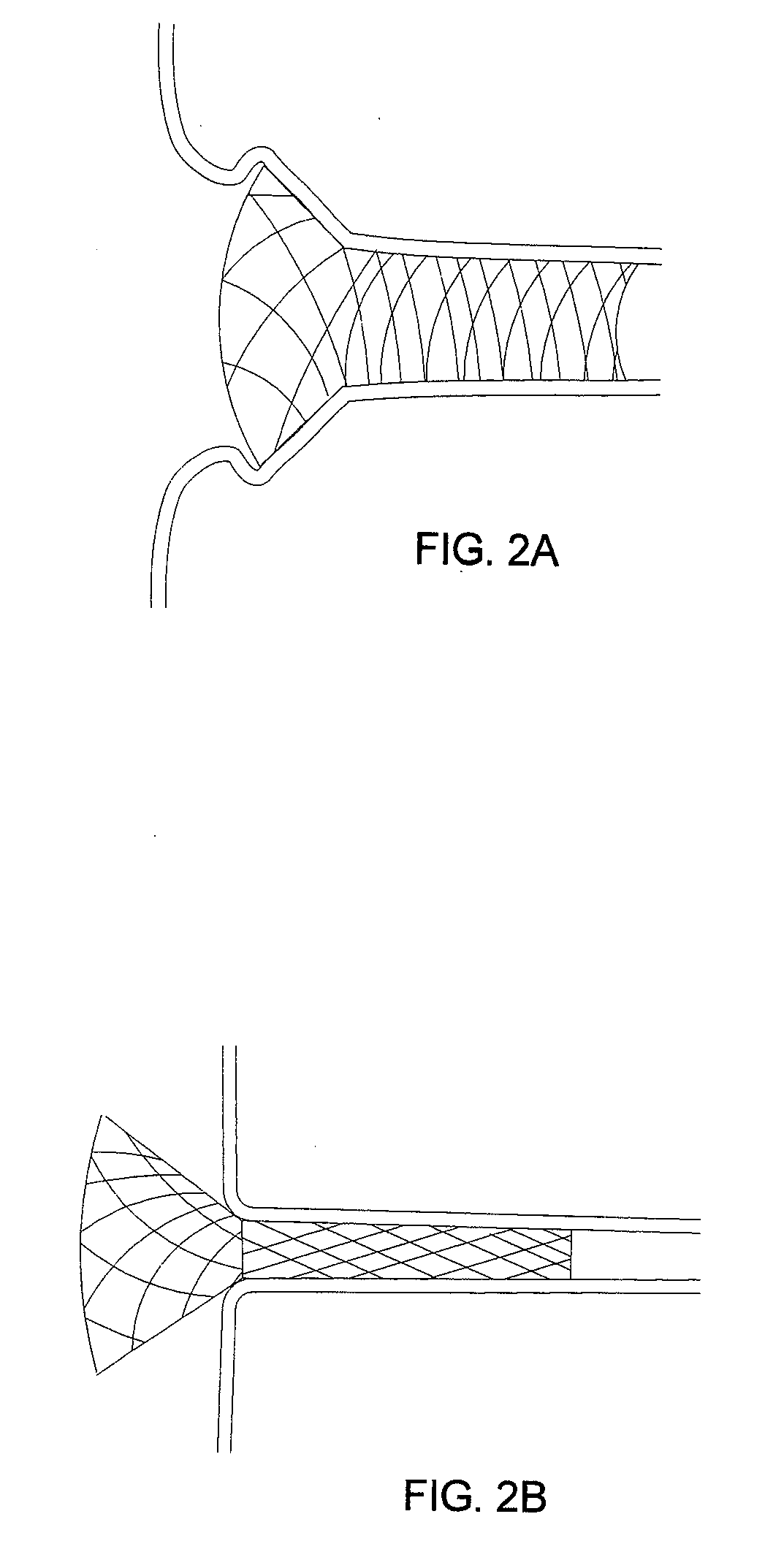Steep-taper flared stents and apparatus and methods for delivering them
a technology of stents and taper plates, which is applied in the field of stents, can solve problems such as improper deployment and achieve the effects of enhancing the support of the ostium, sufficient stiffness, and reducing the risk of improper deploymen
- Summary
- Abstract
- Description
- Claims
- Application Information
AI Technical Summary
Benefits of technology
Problems solved by technology
Method used
Image
Examples
Embodiment Construction
[0069] Turning to the drawings, FIGS. 4-6 show exemplary embodiments of a stent 40 that includes a generally cylindrical tubular member including a proximal or first end 42 and a distal or second end 44 defining a longitudinal axis 46 therebetween. The stent 40 is generally radially expandable from a contracted or delivery condition (not shown), to a flared condition (e.g., as shown in FIGS. 5A, 6A, and 6C), and to an enlarged or fully deployed condition (e.g., as shown in FIGS. 5B, and 6B-6E). For example, the stent 40 may include a first end portion 41 at the first end 42 and a second portion 43 adjacent the first end portion 41, and a plurality of connectors 10 connecting the second portion 43 to the first end portion 41.
[0070] In an exemplary embodiment, the stent 40 may include a plurality of annular bands of cells 47-49 disposed between the proximal and distal ends 42, 44. Each band of cells 47-49 may be defined by a plurality of struts or other elements extending axially alo...
PUM
 Login to View More
Login to View More Abstract
Description
Claims
Application Information
 Login to View More
Login to View More - R&D
- Intellectual Property
- Life Sciences
- Materials
- Tech Scout
- Unparalleled Data Quality
- Higher Quality Content
- 60% Fewer Hallucinations
Browse by: Latest US Patents, China's latest patents, Technical Efficacy Thesaurus, Application Domain, Technology Topic, Popular Technical Reports.
© 2025 PatSnap. All rights reserved.Legal|Privacy policy|Modern Slavery Act Transparency Statement|Sitemap|About US| Contact US: help@patsnap.com



